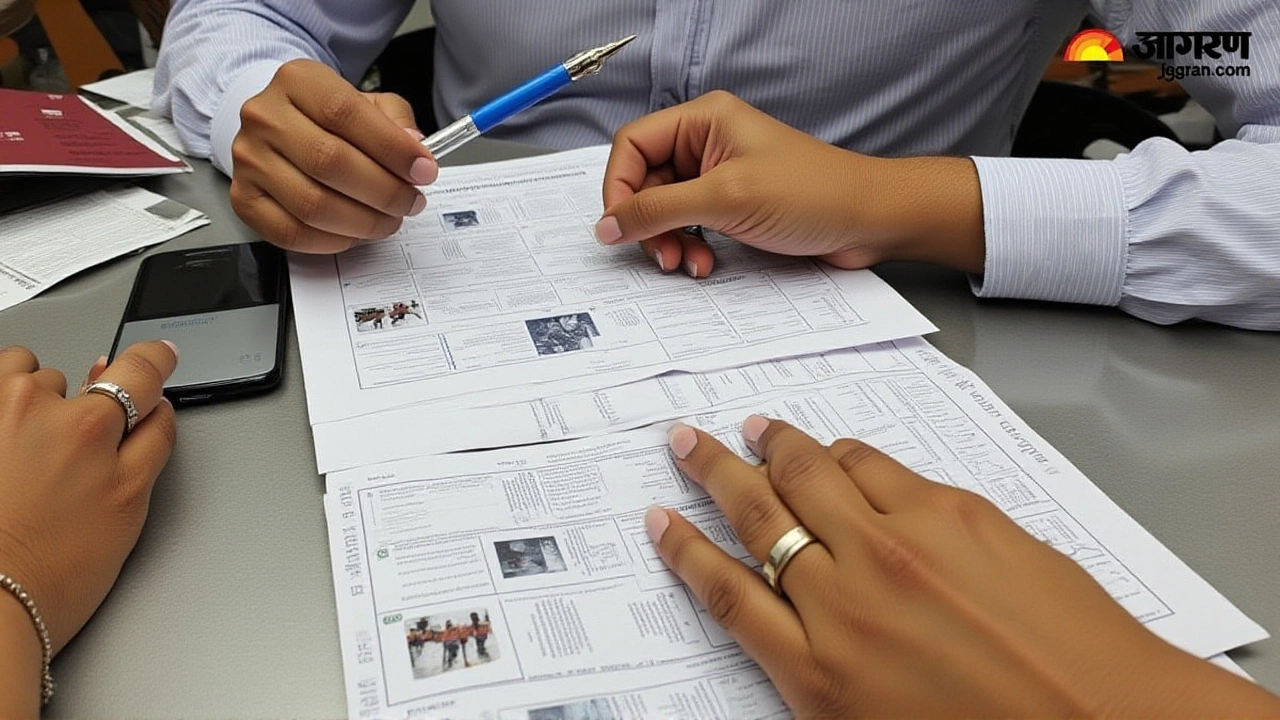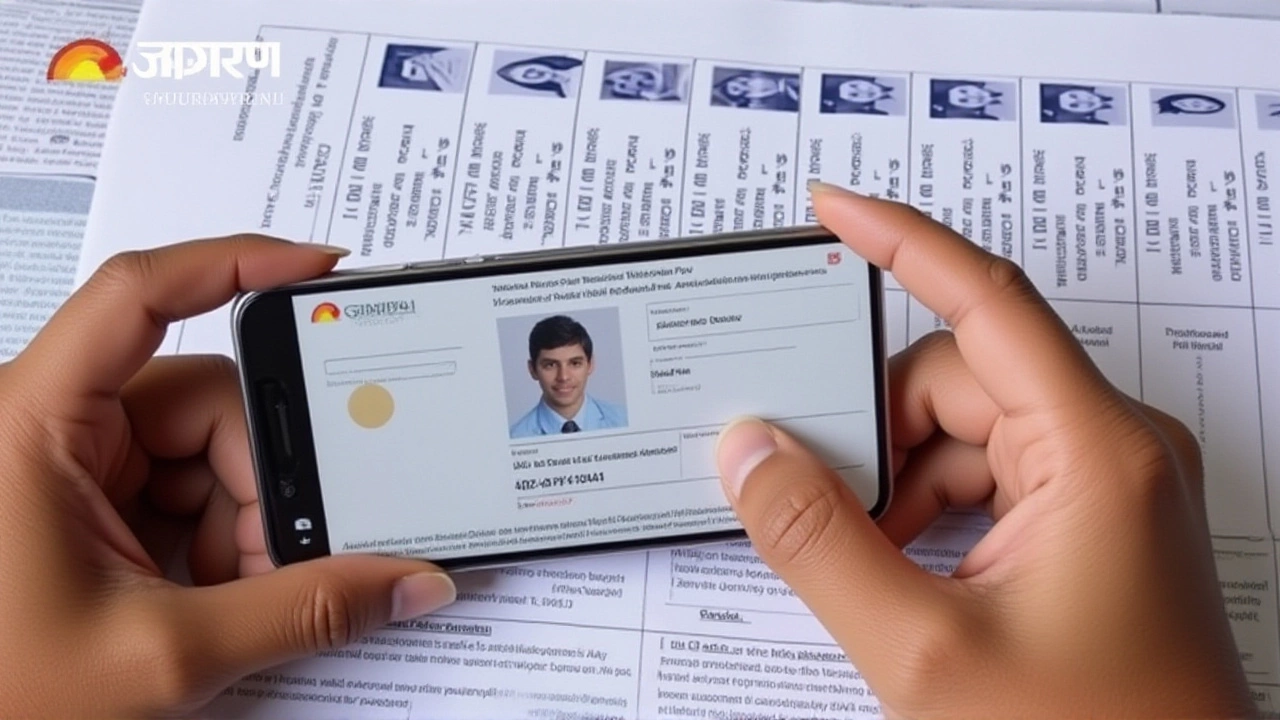When Election Commission of India issued a final warning to 143 government school teachers in West Bengal, it wasn’t just about voter rolls—it was about where the line is drawn between public service and personal sacrifice. These teachers, mostly from Murshidabad, Coochbehar, and Kolkata (North), were told to report as Booth-Level Officers (BLOs) for the Special Intensive Revision West Bengal by Thursday—or face suspension. The deadline passed. And now, salaries are on hold. Booth-Level Officers are the foot soldiers of India’s voter verification system, but for many teachers, this duty feels less like civic service and more like exploitation.
Why Teachers Are Refusing
It’s not defiance. It’s exhaustion. The West Bengal Council of Higher Secondary Education and the West Bengal Board of Secondary Education have formally asked district officials to exempt teachers from BLO duties. Their argument? Classrooms are already stretched thin. In many rural schools, one teacher handles five grades. Pulling them out for door-to-door voter enumeration—often on weekends and holidays—means students lose instructional time. One teacher in Murshidabad wrote to the District Election Officer: “I regret to inform you that due to my various personal and social responsibilities, I am unable to perform such complex duty.” His words echo across dozens of similar letters.Health concerns are real. An unnamed teacher from Coochbehar applied for relief citing medical issues. At least 20 teachers in Kolkata cited chronic illness or family care obligations. Officials say they’ll consider “genuine grounds”—a cancer patient won’t be forced out. But the message is clear: if you’re healthy enough to teach, you’re healthy enough to canvass. The Calcutta High Court backed that stance in August, with Justice Amrita Sinha ruling there was “nothing objectionable” about assigning teachers to BLO roles—and even suggesting they work on Sundays “for the sake of national interest.”
The Pay Disparity That Fuels Resentment
Here’s the twist: for all the risk, the hours, and the pressure, a BLO earns a one-time honorarium of just ₹6,000. That’s less than the cost of a new smartphone. Teachers argue this should be treated as overtime—paid proportionally to their daily salary. A government school teacher in West Bengal earns roughly ₹1,500–₹2,000 per day. Doing 10 days of BLO work? That’s ₹15,000–₹20,000 in value. They get ₹6,000. No benefits. No leave compensation. No insurance.“We’re expected to walk through neighborhoods at night, sometimes with political party agents tagging along,” said an anonymous teacher in North Bengal. “What if someone gets angry because their name’s missing? Who protects us?” The Election Commission of India has promised safety measures, with Sub-Divisional Officers and District Magistrates accompanying BLOs. But promises don’t pay bills or prevent harassment.
A Nationwide Pattern
This isn’t just a West Bengal problem. In Bihar, about 60 BLOs in Muzaffarpur had their salaries suspended over verification errors. In Begusarai, one officer was suspended for submitting false data. In Gujarat, teachers submitted memorandums demanding a permanent end to arrest warrants for BLOs, a separate cadre for election duties, and fair distribution of responsibilities across all government cadres. The Akhil Bharatiya Rashtriya Shaikshik Mahasangh specifically highlighted how women teachers face added risks—walking alone in unfamiliar areas, dealing with hostile households, and balancing childcare with fieldwork.“They’re being used as free labor,” said a union leader in Patna. “The Election Commission needs to stop treating teachers like disposable tools.”

What’s at Stake
The Special Intensive Revision West Bengal is critical. It’s the final voter roll cleanup before next year’s state Assembly elections. With millions of names potentially missing or outdated, the ECI needs every BLO to hit every home. Teachers are the only large, organized workforce available. But forcing them risks backlash—not just from educators, but from parents, students, and the public who see this as a breakdown in trust.Meanwhile, the Election Commission of India has launched an online portal where voters can download and submit forms themselves. But in rural areas with poor internet, low digital literacy, and no smartphones, that’s not a solution—it’s an excuse. The door-to-door process remains essential. And someone has to do it.
What Happens Next
The suspension orders for the 143 teachers will be enforced by Friday. Departmental proceedings will follow. Some may be reinstated if they appeal with medical proof. Others won’t. The real question: will the ECI change its approach, or double down? In Bihar, they’ve shown they’re willing to cut salaries over minor errors. In West Bengal, they’re willing to suspend careers over refusal.Teachers’ unions are preparing for protests. The opposition parties are already politicizing the issue. And the students? They’re just waiting for their teachers to come back to class.
Frequently Asked Questions
Why are teachers being made to serve as BLOs instead of dedicated election staff?
The Election Commission relies on teachers because they’re a large, geographically dispersed, and trusted workforce with access to households. Dedicated BLO cadres don’t exist in most states, and hiring temporary staff would be cost-prohibitive. But critics argue this exploits educators’ institutional access while ignoring their primary role: teaching.
How much do BLOs actually earn, and is it fair?
BLOs receive a flat honorarium of ₹6,000 per assignment, regardless of hours worked—often spanning 2–3 weeks, including weekends. For a teacher earning ₹1,800/day, this amounts to roughly one-third of their fair compensation. Many argue this violates labor norms, especially when duties include travel, risk, and after-hours work.
What happens if a teacher is suspended for refusing BLO duty?
Suspension means pay stoppage and initiation of departmental proceedings. They may be reinstated if they appeal with valid medical or personal grounds. But repeated refusal can lead to loss of promotion eligibility, transfer to remote schools, or even termination in extreme cases—though none have occurred yet.
Are other states facing similar issues?
Yes. In Bihar, 60 BLOs had salaries withheld over verification errors. In Gujarat, teachers demanded a separate BLO cadre and protection from arrest. Similar protests have occurred in Odisha and Jharkhand. The issue is national, but West Bengal’s scale and the High Court’s backing have made it the epicenter.
Can voters submit forms online instead of relying on BLOs?
Yes, the Election Commission’s website and app allow online submissions. But in rural West Bengal, only 32% of households have reliable internet, and fewer than 20% of adults are digitally literate. For elderly, low-income, or disabled voters, BLOs remain the only viable pathway—making their role indispensable, even if poorly compensated.
What’s the Election Commission’s long-term plan for BLOs?
There isn’t one. The ECI has repeatedly called for a permanent BLO cadre but lacks funding and political will to create it. Until then, they’ll continue using teachers, postal staff, and local government employees—despite mounting resistance. The system works, but it’s built on goodwill, not justice.
